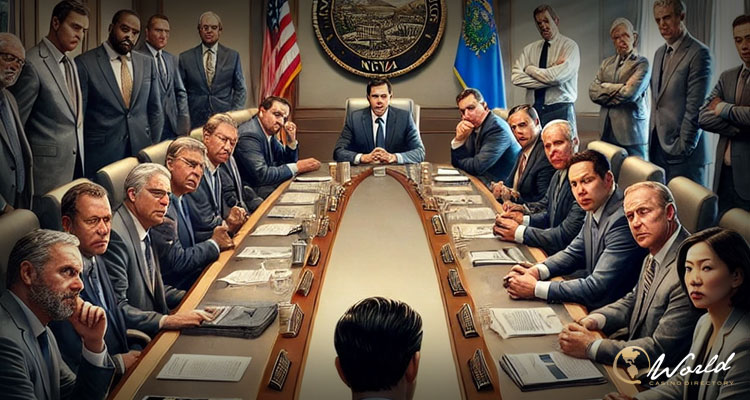In a recent regulatory session, Penn Entertainment came under fire from Nevada gaming regulators for persistent compliance issues across its operations. The Nevada Gaming Commission reviewed these problems during what was meant to be a routine proceeding concerning Penn’s ongoing public offerings.
Located in Nevada, Penn Entertainment operates the M Resort Spa Casino in Henderson and Cactus Pete’s Resort Casino in Jackpot. These two venues are part of the company’s larger portfolio of 43 casinos nationwide. However, concerns have been raised about minors accessing their facilities, issues with self-excluded gamblers, and delays in policy updates meant to address these and other problems.
During the session, Commissioner Rosa Solis-Rainey highlighted instances from as far back as 2020 that had previously been flagged by regulators. Despite this, the company’s actions to rectify these issues seem to have fallen short of the regulatory board’s expectations.
Chris Soriano, Penn’s Vice President and Chief Compliance Officer, explained the delays in policy implementation were due to a comprehensive review meant to integrate best practices and include their interactive business. This process, he noted, was more time-consuming than anticipated. Soriano mentioned a meeting set for August 15, where the newly revised policies are expected to be ratified.
However, Solis-Rainey expressed dissatisfaction with the interim measures Penn had put in place to prevent further violations. She stressed the need for enhanced communication and follow-up measures with property managers to ensure adherence to regulatory standards. Soriano responded by indicating that the company was examining more effective strategies to prevent human errors and standardize policies across various jurisdictions, which have different regulatory focuses and penalties.
More Criticism for Penn Entertainment
The discussion also touched on internal controls, with Solis-Rainey criticizing the recurring nature of the violations and the apparent ineffectiveness of current measures to prevent them, according to CDC Gaming Reports. She pointed out that simply informing management was insufficient and called for specific amendments to the controls at each property to align with overarching company policies.
Addressing training concerns, Soriano acknowledged the potential need to improve staff training to ensure compliance controls are effectively implemented. He affirmed Penn’s commitment to resolving these issues, indicating plans to discuss progress with the Nevada Gaming Control Board in a follow-up meeting in September.
The session revealed a significant level of frustration among the commissioners regarding the pace and seriousness of Penn’s compliance efforts. Commissioner Brian Krolicki suggested that integrating compliance metrics into performance evaluations could be an effective strategy to enhance compliance at all levels of the organization.



